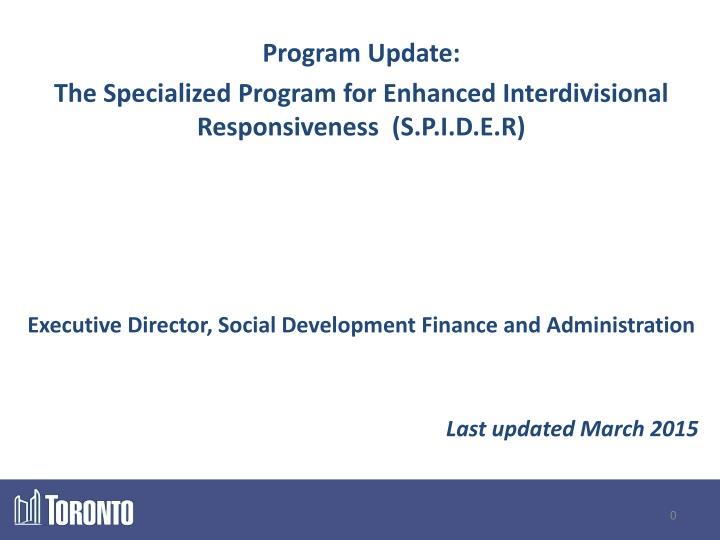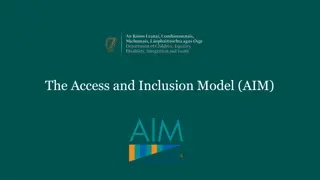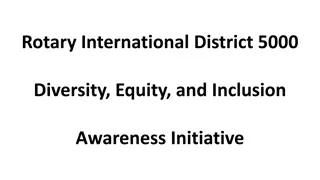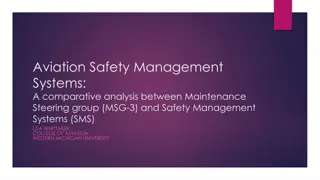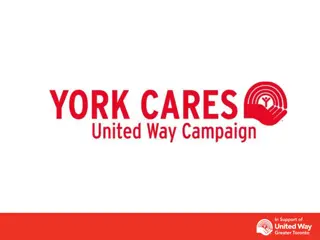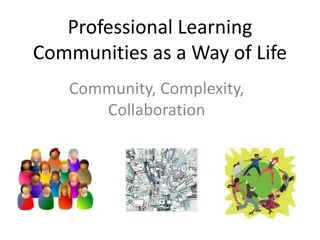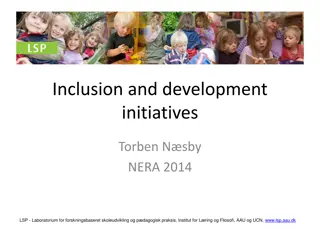Enhancing Safety and Inclusion in Toronto Communities: The SPIDER Program
Tackling the issue of problem hoarding, the SPIDER program aims to reduce health and safety risks, coordinate responses, provide services, and drive systemic reforms in Toronto neighborhoods. By addressing vulnerability and promoting integration, the program strives for a safer and more inclusive community.
Download Presentation

Please find below an Image/Link to download the presentation.
The content on the website is provided AS IS for your information and personal use only. It may not be sold, licensed, or shared on other websites without obtaining consent from the author.If you encounter any issues during the download, it is possible that the publisher has removed the file from their server.
You are allowed to download the files provided on this website for personal or commercial use, subject to the condition that they are used lawfully. All files are the property of their respective owners.
The content on the website is provided AS IS for your information and personal use only. It may not be sold, licensed, or shared on other websites without obtaining consent from the author.
E N D
Presentation Transcript
Program Update: The Specialized Program for Enhanced Interdivisional Responsiveness (S.P.I.D.E.R) Executive Director, Social Development Finance and Administration Last updated March 2015 0
City Council on December 16, 2013 adopted the following: 1. City Council request the Government of Ontario to review the Mental Health Act to provide accommodation for those suffering from Compulsive Hoarding. 2. City Council request the Government of Ontario to reconsider the phrase "has shown or is showing a lack of competence to care for himself or herself" in section 15 (Application for psychiatric assessment), section 16 (Justice of the peace s order for psychiatric examination) and section 17 (Action by police officer) in Part II of the Act (Hospitalization) to ensure application to problem hoarders and, if deemed appropriate, changed as necessary to properly address problem hoarders. 3. City Council request the Government of Ontario to provide adequate outpatient treatment options for problem hoarders. 4. City Council request the Government of Ontario to review the Conditions for Involuntary Admission under section 20 (Duty of Attending Physician) in Part II of the Act (Hospitalization) to assess whether it is appropriate to allow for options cited in Part 3 above to be included. 5 City Council authorize the Executive Director, Social Development, Finance and Administration to establish the Specialized Program for Interdivisional Enhanced Responsiveness (SPIDER) on a 'proof of concept' basis. 6. City Council authorize that the 2014 Operating Budget of Social Development, Finance and Administration be increased by $199,000 gross and zero net to reflect the two new temporary staff positions and the funds be allocated through Interdivisional Recovery (IDR) from the Toronto Employment and Social Services Division. 7. City Council authorize that the 2014 Operating Budget of Toronto Employment and Social Services be adjusted to include a draw of $199,000 equal to the gross expenditures from the Social Assistance Stabilization Reserve and transfer the funds to Social Development, Finance and Administration through Interdivisional Charges (IDC). 8. City Council forward a copy of this Item to the Board of Health for information. 1
ISSUE Unresolved Complex Health and Safety Risks Involving : Vulnerable Residents, Their Homes and Property, and Their Neighbours Problem Hoarding is a critical concern in many but not all of these situations. 2
PROGRAM MANDATE To reduce recurrence of these risks, and ensure safe integration and inclusion of vulnerable Torontonians in their neighbourhoods and communities by: Ensuring City of Toronto responses are coordinated; Ensuring existing health care, social and community services are made available; and Identifying and driving needed systemic reforms 3
VULNERABILITY Vulnerability is the result of interaction between the challenges a person faces and the resources that they can access when facing those challenges. A vulnerable resident must be assessed in context - a person's vulnerability or resiliency will depend on their circumstances, environment and resources in the broadest sense. Vulnerable persons may be isolated, without identified supports, reclusive, or have underlying physical or mental health issues that pose a threat of harm to themselves and/or others. Threat of harm to self may be due to reduced ability to manage activities of daily living, substance misuse, reduced insight, and/or reluctance to accept support services. - Toronto Public Health Vulnerable Adults/Seniors Team Policy 2012. 4
SPIDER PROGRAM DESIGN TEAM Toronto Paramedic Services Employment and Social Services Social Devel. Finance & Admin Fire Services Toronto Community Housing Shelter Support and Housing with: City Solicitor Equity, Diversity & Human Rights Human Resources Ombudsman Toronto Central Local Health Integration Network Health Care/Community Services Agencies Municipal Licensing & Standards Toronto Public Health 5
PROGRAM DESIGN TEAM Purpose of this Consultation FINDINGS - SPIDER does not supersede normal services or replace interdivisional coordination when it is already working. - The problem is often not alack of front-line coordination among City Divisions. - However, the types of services the City is authorized to provide (coordinated or not) may not be appropriate for addressing the immediate or longer-term issues and vulnerabilities. 6
TIMELINE December 2013: Council authorized SDFA to establish Specialized Program for Interdivisional Enhanced Responsiveness (SPIDER) on a 'proof of concept' basis. January-June 2014: August/September: September 2014: October 2014: March 2015: Interdivisional Participation in Program Design Staff Hired & Trained Launch Situation Table for frontline cases Launch Steering Committee for oversight; interdivisional troubleshooting Launch System Reform Table to drive policy change Systemic Reform Table has begun meeting to discuss emerging data trends and policy implications 7
SPIDER STRUCTURE (based on FOCUS REXDALE) Local or Inter- governmental Policy Change System Reform Table Steering Committee Situation Table (Front Line) Current Situation
SITUATION TABLE Collective Impact vs System Navigation (green = new staff) Fire/ TPS Situation Table Case Manager Fire Community Services Health Services Community Services Health Services MLS TPS TPS Public Health Public Health 9
DISCUSSED AT THE SITUATION TABLE Eligible? Risk Factors? Is there a Need for Intervention? Purpose of the intervention? Approach? Client(s) Who will lead? Which agencies will be involved? Time frame for Report Back? Report Back: Have all the divisions acted with duty to care and met service standards? Has individual been availed of all relevant community supports and warm referrals Underlying source of problems identified? Illustrates an issue for the System Reform Table? PARTICIPATING DIVISIONS RECEIVE CALLS THROUGH REGULAR CHANNELS AND ADDRESS THEM THROUGH REGULAR MEANS INCLUDING COORDINATION WITH OTHERS Referral Organizations ANY DIVISION CAN SUBMIT SITUATIONS THAT MEET SPIDER ELIGIBILITY CRITERIA TO THE SITUATION TABLE. DIVISIONS MUST COME PREPARED TO EACH MEETING WITH UPDATES ON ALL THE INTERVENTIONS SUBMITTED. SITUATIONS ARE PRE-SCREENED BY STAFF AND PRESENTED TO SITUATION TABLE. Referral Divisions
How it Could Work: The SPIDER Situation Table Model REFERRALS - Only a Participating Division at the SPIDER Situation Table can refer a case. - City Divisions that do not participate at SPIDER may contact SPIDER for guidance re: initiate service linkages. - The SPIDER Program does not take referrals from the public. 11
SITUATION TABLE UPDATE: August 2014 March 2015 22 numbered cases now on file: - housing vulnerability due to fire hazard, pest infestations, unsanitary, etc. - refusal of services - seniors - property owners - elder abuse - 2 cases redirected back to originating division for normal service linkages System Reform Table Launched 10 City Divisions signed Memorandum of Commitment to Participate 4 Community/Health Care partners have joined There has been 1 quarterly debrief and a review of operational and systemic themes emerging at the table 12
PROGRAM UPDATE Toronto Community Housing Originating Agencies Toronto Municipal Licensing and Standards Toronto Public Health VAST Shelter Support and Housing Toronto Fire 13
PROGRAM UPDATE Responding Agencies COTA 3% 8% Revenue Services 15% 8% Toronto Central CCAC TCHC 6% TESS Toronto Fire 15% MLS - Animal 8% TPS - Investigations TPS (EMS) 6% 5% TPH - HE 5% 8% TPH - VAST 8% 5% SSHA 14
System Reform Table on Vulnerability in Toronto -To drive system-level reforms that will increase the capacity of the City and its partners to respond effectively to complex health and safety risks involving vulnerable Torontonians, their homes or property, and their neighbours. - Focused on policy, legislative, or resourcing barriers that preclude effective resolution of a risk situation. - Includes: City of Toronto senior management and external decision-makers. 15
Purpose of this Consultation Emerging System Level Issues - Capacity and Consent Issues (clients refusal of support services, even when this puts self, property, neighbours at risk) - Hospital Discharges to No Follow-Up/Social Service Supports - Need for complementary definitions, policies and procedures for responding to vulnerability. - Human and financial resources to implement services changes to respond to vulnerability. - Limited health care/community services exist to address underlying causes of problem hoarding. 16
Partner Agency Commitments - Establish internal communications/authorization procedures for notifying staff about SPIDER program and expediting responses to SPIDER situations.* -Actively support SPIDER Program if the Situation Table decides that a nominated situation justifies an intervention involving that Division. Commitments to Participate - Introduce SPIDER case file numbers into Division s administrative records to permit shared reporting and evaluation, consistent with privacy legislation. 17
Contact Dan Breault Community Development Officer S.P.I.D.E.R City of Toronto dbreaul@toronto.ca 416.392.6414 Scott McKean Manager, Community Development City of Toronto smckean2@toronto.ca 416.392.0103 Lavinia Corriero Yong-Ping, RN Community Development Officer S.P.I.D.E.R City of Toronto 416.397-9970 lcorrie@toronto.ca 18
